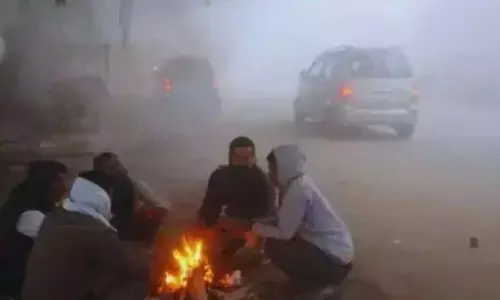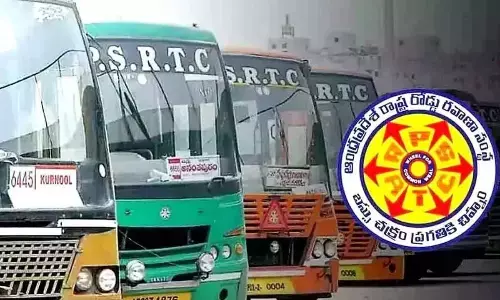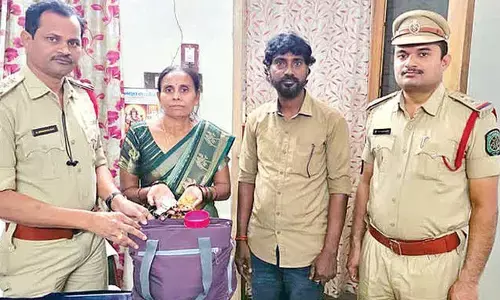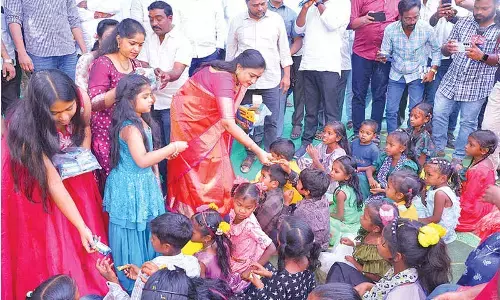Venkatagiri Saree weavers set to capitalise on Geographical Identification tag
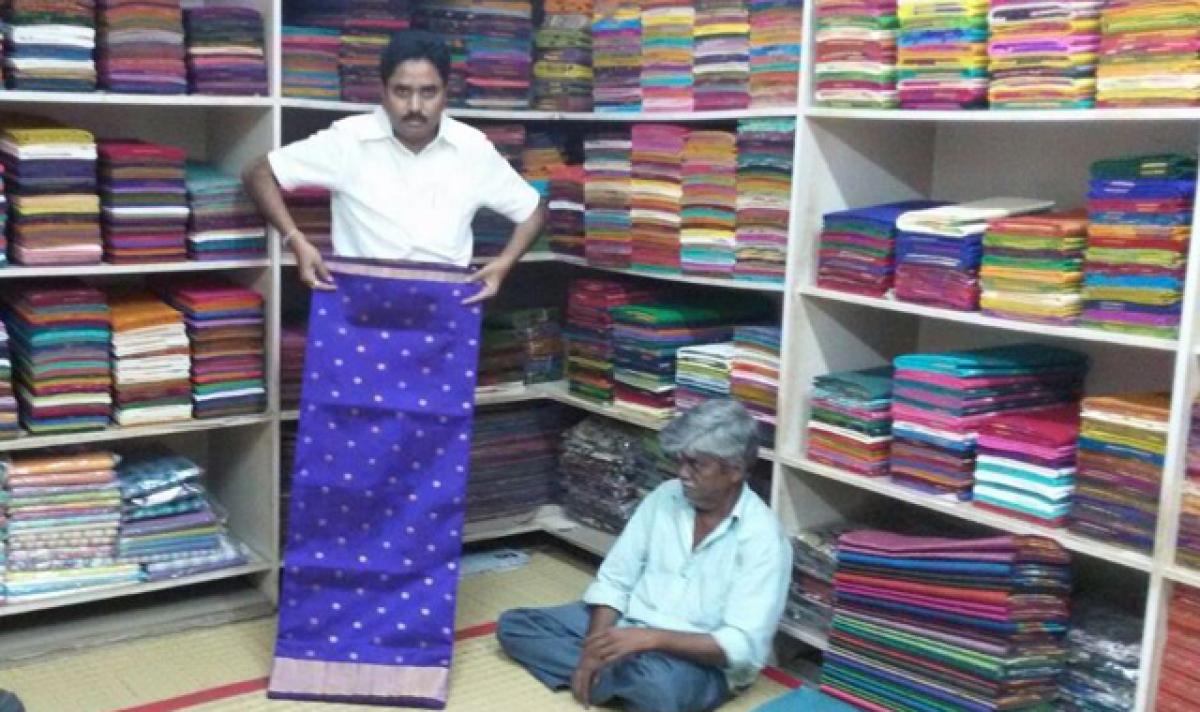
Handloom weavers who failed to cash in on the Geographical Identification tag for Venkatagiri Saree are now planning to start online trading to boost sales.
Nellore: Handloom weavers who failed to cash in on the Geographical Identification tag for Venkatagiri Saree are now planning to start online trading to boost sales.
- Local traders/weavers failed to utilize the prestigious tag which was awarded in 2011-12 and still groping in dark to improve marketing
- They are now using whatsapp and other applications for exchanging models and getting orders
- Only commercial websites who buy sarees from the traders are grabbing orders and the weavers/local traders are planning to introduce an exclusive weavers’ website for boosting sales
It may be recalled that the Venkatagiri Saree, which is famous across Andhra Pradesh, got the GI tag in 2011, the first one in the district. Even, after seven years of achieving the prestigious tag there has been no significant improvement in the direct sales and only online trading sites were exploiting the opportunity after sourcing the sarees from the local traders.
According to the local populace the saree has a 300-year-old history. The hand-woven saree is made of pure cotton with elaborate zari work and often with gold and silver borders and is suitable for humid and hot weather conditions.
The Kasipeta Handloom Weavers Cooperative Production and Sale Society of Venkatagiri applied for the GI tag in 2009 and achieved the status in 2011-12. The outstanding workmanship of the weavers has been recognized and the saree had become the 18th Indian saree to be awarded Geographical Indication from the registrar of Intellectual Property Rights.
Traders expected the tag to be advantageous since it confers legal protection in the country, prevents misuse, and also boosts exports to other countries. But, lack of awareness on the trading activity and support from the government wings, weavers of Venkatagiri Saree not only failed to capitalize on the tag but also failed to protect the state-of-the-art design that represents antiquity.
Consequently, many South Indian districts started producing sarees that were also of better quality, following a similar weaving tradition, for improving the sales. But, local traders who did on latch on to the marketing techniques were lagging behind in sales. Now, with a view to improve their prospects, some traders who weave sarees are planning to start their own business through online trade.
There are about 3,000 looms and the local workers weave around 50,000 sarees per month in Venkatagiri town. Traders purchase sarees from master weavers and mini-master weavers and store them for sale. Traders and consumers across the country visit Venkatagiri and purchase the sarees.
But, in tune with the changing in trends, local merchants are now using whatsapp to send models of sarees for getting orders. Merchants send sarees in bulk through transport and receive cash through banks. Majority of the traders purchase zari, silk sarees ranging from Rs.2,000 to Rs.18,000.
‘We are sending the model through whatsapp. We receive orders online even from NRIs. Now, we are planning to launch a website www.venkatagirihandloo ms.com for online activity shortly’, said K Srinivas, a merchant from Venkatagiri.
By P V Prasad











